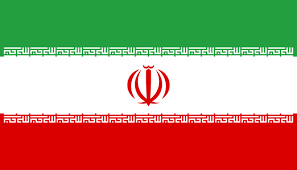Language/Iranian-persian/Grammar/Give-your-Opinion
Hi Iranian Persian learners! 😊
In this lesson, we will focus on how to express opinions in Iranian Persian. Giving opinions is an important part of communication and expressing your thoughts and feelings. It plays a significant role in conversations, discussions, and debates.
Let's start with some basic phrases you can use to express your opinion:
Consider broadening your understanding by checking out these related lessons: How to Use Be & Lesson 3: Word order in Persian sentences.
Basic Phrases[edit | edit source]
| Iranian Persian | Pronunciation | English |
|---|---|---|
| من فکر میکنم... | man fekr mikonam... | I think... |
| برای من... | baraye man... | For me... |
| به نظر من... | be nazar-e man... | In my opinion... |
| بنظرم... | be-nazar-am... | To me... |
For example:
- Person 1: من فکر میکنم، امروز هوا خیلی خوب است. (man fekr mikonam, emrooz havā khili khub ast) (I think, today the weather is very nice.)
- Person 2: به نظر من همینطوریه. (be-nazar-e man hamintoori-ye) (In my opinion, it is the same.)
Now that you know some basic phrases, let's learn how to express different levels of certainty and doubt:
Uncertainty and Doubt[edit | edit source]
| Iranian Persian | Pronunciation | English |
|---|---|---|
| شاید | shayad | maybe |
| به نظرم | be-nazar-am | it seems to me |
| خیلی اطمینان ندارم | khili etminan nadaram | I am not very sure |
| بنظر نمیآید | be-nazar nemiyād | it doesn't seem to me |
For example:
- Person 1: به نظرت چاقوی من کجا افتاده؟ (be-nazaret chāghoo-e man koja offtāde?) (Where do you think my knife fell?)
- Person 2: شاید توی کیف باشه. (shayad tooy-e kif bāshe) (Maybe it's in your bag.)
Here's an important point to consider when giving opinions in Iranian Persian:
The Subjunctive Mood[edit | edit source]
In Iranian Persian, opinions are often expressed in the subjunctive mood. The subjunctive mood describes a desired, imagined or potential state of being, rather than a factual or actual state of being. Let's look at an example for better understanding:
"If I were you, I would go to the party."
In this sentence, the speaker is expressing an opinion in the subjunctive mood, because it is not a factual or actual state of being. We use the subjunctive mood to express our thoughts, feelings or opinions about hypothetical situations, potential outcomes or desired states of being.
Here are some common phrases used in the subjunctive mood:
| Iranian Persian | Pronunciation | English |
|---|---|---|
| بهتر است | behtar ast | it's better |
| باید | bāyad | should |
| من ترجیح میدهم | man tarjih mideham | I prefer |
| اگر...بود | agar...boud | if...were |
For example:
- Person 1: چه میخواهی بخری؟ (che mikhaahi bokhari?) (What do you want to buy?)
- Person 2: من ترجیح میدهم یک خرچال بخرم. (man tarjih mideham yek khorchaal bokhoram) (I prefer to buy a broom.)
Now let's discuss some cultural aspects related to expressing opinions in Iranian Persian:
Cultural Aspects[edit | edit source]
In Iranian culture, it is important to be respectful and polite when expressing opinions. It is considered impolite to express opinions in a way that could offend or insult someone. It is important to use polite language and to show respect for others' opinions.
Additionally, Iranians tend to express their opinions indirectly. It is common to use phrases such as "it seems to me" or "in my opinion" rather than stating opinions directly. This indirect way of expressing opinions is considered more polite and respectful.
Now let's have a dialogue using the phrases we have learned in this lesson:
- Person 1: به نظرت آیا فیلم "پدرخوانده" خوب بود؟ (be-nazaret āyā film "pedar-khānde" khub bud?) (Do you think the movie "stepfather" was good?)
- Person 2: به نظرم خیلی جالب نبود. (be-nazar-am khili jaaleb nabud) (In my opinion, it wasn't very interesting.)
- Person 1: شاید چون داستانش خیلی پیچیده بود. (shayad chon dāstānash khili pichide bud) (Maybe because the story was very complicated.)
- Person 2: بنظرم باید بیشتر به نقش بازی بازیگرها توجه کرد. (be-nazar-am bāyad bishtar be naqsh bāzi-ye bāzigar-hā tavajjoh kard) (I think we should pay more attention to the actors' performances.)
Remember, to improve your Iranian Persian Grammar, you can also use the Polyglot Club website. Find native speakers and ask them any questions!
➡ If you have any questions, please ask them in the comments section below.
➡ Feel free to edit this wiki page if you think it can be improved. 😎
Other Lessons[edit | edit source]
- Negations
- Common Mistakes
- Gender
- Plural
- Persian Grammar
- Negation
- Turn
- Pronouns
- Conditional Mood
- Come


